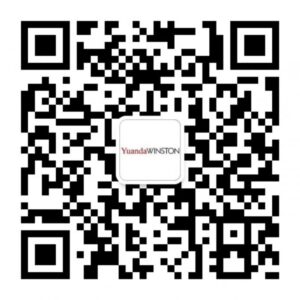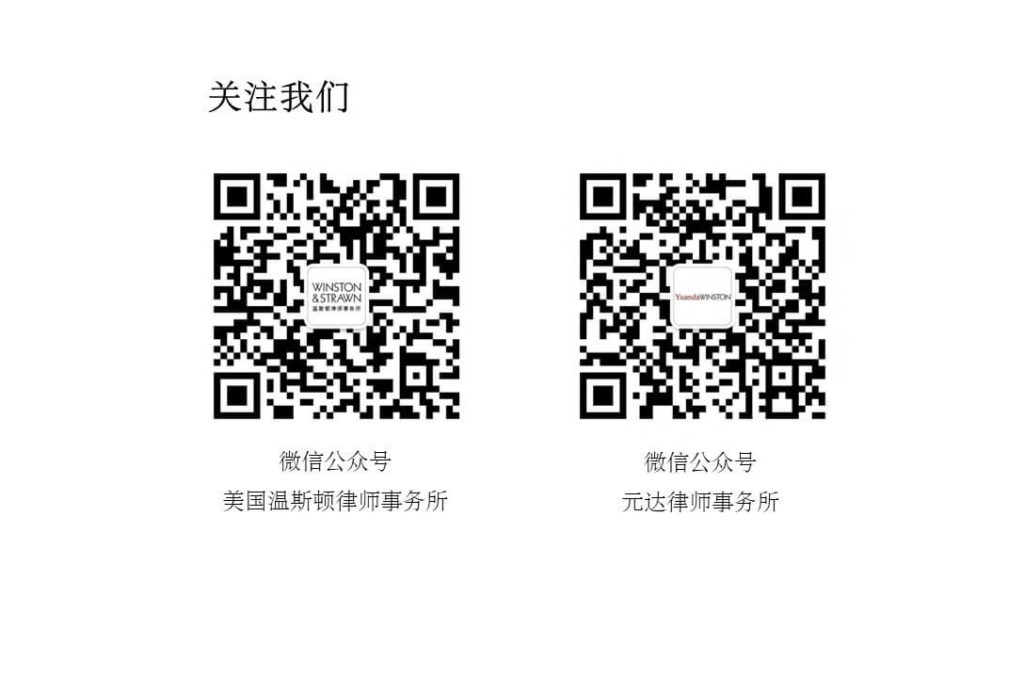MOFCOM Issues Order to Combat Extraterritorial Application of Foreign Laws and Sanctions
On January 9, 2021, in its first order of 2021, the Ministry of Commerce (“MOFCOM”) of the People’s Republic of China (“PRC” or “China”) issued Measures on Obstructing the Unjustified Application of Foreign Laws and Measures (《阻断外国法律与措施不当域外适用办法》) (the “Blocking Measures”) on the basis of the PRC National Security Law.[1] The Blocking Measures came into effect the same day.
It is expected that implementing regulations and guidance will be issued later, which will help explain the scope and effect of the Blocking Measures. The essence of the Blocking Measures is to counter secondary sanctions by foreign governments because they apply where a foreign law or sanction impacts the economic activities of a PRC citizen, legal person, or organization (“PRC Party”) with the citizens, legal persons, or organizations of a third state or region (not China or the sanctioning country).
The Blocking Measures permit the Chinese government to adopt countermeasures in response to what it perceives as the unjustified territorial application of foreign laws or legislation, and they provide PRC Parties with a cause of action to seek damages in PRC court.
The Working Mechanism
The Blocking Measures establish a working mechanism under the PRC State Council Commerce division to “take charge of counteracting unjustified extra-territorial application” of foreign laws and sanctions. The working mechanism will determine whether a foreign law or sanction is unjustified in its extraterritorial application based on:
- Whether the extraterritorial application of the foreign law or sanction violates international law or the basic principles of international relations;
- The potential impact of the foreign law or sanction on China’s sovereignty, national security, or development interests;
- The potential impact on the rights and interests of PRC citizens, companies, or other organizations; and
- Other relevant factors.
Additionally, the Blocking Measures provide for the working mechanism to provide “guidance and service” to PRC citizens, companies, or other organizations facing issues in response to foreign laws and sanctions.
Reporting Requirement
The Blocking Measures include a reporting requirement for PRC Parties. If a PRC Party would be prohibited or restricted in its economic or international trade activity due to a foreign law, legislation, or sanction, the Blocking Measures require that they report that to the working mechanism within 30 days of such knowledge. If they fail to comply with this reporting requirement, they may be subject to a warning or official reprimand, an order to correct behavior within a limited time, or even fines.
Prohibition Orders
Upon the assessment of the foreign law or sanction, the working mechanism will review the foreign law or sanction and may issue a “Prohibition Order” if it determines that the extraterritorial application of the foreign law or sanction is unjustified. The Prohibition Order formally declares that the PRC does not recognize the legitimacy of the foreign law or sanction and its related prohibitions, and that PRC Parties are prohibited from complying with the foreign law or sanction. Additionally, the Blocking Measures also allow for PRC government agencies to provide “necessary support” for PRC citizens, companies, or other organizations who may suffer significant losses for compliance with a Prohibition Order and subsequent non-compliance with the foreign law or sanction.
PRC Litigation for Compliance
If any party complies with a foreign law or sanction subject to a Prohibition Order, and such compliance infringes on the rights and interests of a PRC Party, the Blocking Measures creates a possible opportunity to claim damages in PRC court, though the procedures and operation of this type of case would likely be distinct from other civil litigation. It is also worth noting that the Blocking Measures are not a formal “law” and are instead a “measure.” Under the hierarchy of Chinese law, that means that the litigation language in the Blocking Measures may not necessarily be a separate cause of action but could be considered a ground for litigation to support a tort action or other cause of action under the PRC Civil Code or other PRC law.
Additionally, if a foreign court or tribunal issues a decision involving or based on a foreign law or sanction that is within the scope of a Prohibition Order, and that decision causes losses to a PRC Party, then the Blocking Measures would provide for legal proceedings in PRC court seeking damages against the party that benefits from the foreign court or tribunal decision.
The Blocking Measures specifically mention that they do not apply to extraterritorial application of foreign legislation or other measures provided for in treaties or international agreements to which China is a party. So, enforcement of foreign arbitral or mediation awards may not be significantly impacted because China is a party to both the New York Convention and the Singapore Mediation Convention.
Cross-Over with Other Laws and Regulations
Another striking feature about the Blocking Measures is the similarities and crossover they share to at least one PRC regulation and one new PRC law; namely, the PRC Provisions on the Unreliable Entities List[2] (“UEL Provisions”) and the PRC Anti-Foreign Sanctions Law (“AFSL”).[3] These crossover elements could require the linked interpretation and implementation of these laws, meaning that individuals, companies, and organizations facing potential issues under one of these laws, regulations, or measures may need to consider the impact of all three.
With respect to the UEL Provisions, both working mechanisms established under the UEL Provisions and the Blocking Measures are under the State Council Commerce division, and they consider similar factors when determining whether to issue decisions under their respective mandates. As a result, the application of the UEL Provisions and the Blocking Measures could be integrated or could be considered as “linked,” meaning that decisions made under one may result in implications from the other.
With respect to the AFSL, key provisions under the Blocking Measures are also explicitly included in the AFSL. Specifically, both include language creating opportunities to claim damages in litigation as well as the ability to implement countermeasures for foreign laws and sanctions. For litigation claims, the major difference is that the AFSL is a “law” within the Chinese legal system, so this may create a separate cause of action parties can rely on in raising litigation in Chinese courts. Additionally, the countermeasures prescribed under the AFSL has already been used,[4] while countermeasures under the Blocking Measures have yet to be utilized. Regardless, the foundation for the AFSL can be seen in the language of the Blocking Measures, potentially linking the two in practice.
[1] MOFCOM, 《阻断外国法律与措施不当域外适用办法》,商务部令2021年第1号,2021年1月9日, available at http://www.mofcom.gov.cn/article/b/c/202101/20210103029710.shtml; English version provided by MOFCOM and available at http://english.mofcom.gov.cn/article/policyrelease/announcement/202101/20210103029708.shtml.
[2] MOFCOM, 《不可靠实体清单规定》,商务部令2020年第4号,2020年9月19日, available at http://www.mofcom.gov.cn/article/zwgk/zcfb/202009/20200903002593.shtml; English version provided by MOFCOM and available at http://english.mofcom.gov.cn/article/policyrelease/questions/202009/20200903002580.shtml.
[3] PRC National People’s Congress, 《中华人民共和国反外国制裁法》,2021年6月10日,available at http://www.npc.gov.cn/npc/c30834/202106/d4a714d5813c4ad2ac54a5f0f78a5270.shtml; English translation provided by China Law Translate, available at https://www.chinalawtranslate.com/en/counteringforeignsanctions/.
[4] PRC Ministry of Foreign Affairs, “Foreign Ministry Spokesperson’s Remarks on China’s Decision to Impose Sanctions on Relevant US Individuals and Entities,” July 23, 2021, available at https://www.fmprc.gov.cn/mfa_eng/xwfw_665399/s2510_665401/2535_665405/t1894670.shtml.




